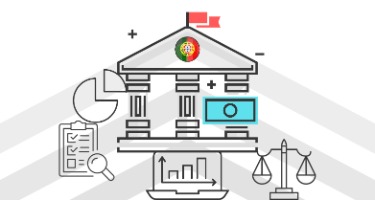Introduction
Recognising the new risks arising from technology, which is transforming payments, as well as from the merging of services that were previously regulated separately, the Payment Services Act (PSA) was passed into law on 14 January 2019. With the aim of providing for the licensing and regulation of payment service providers, the oversight of payment systems and connected matters under one consolidated act, the PSA seeks to combine the previous Payment Systems (Oversight) Act 2006 and the Money-Changing and Remittance Businesses Act 1979 into a forward looking and flexible framework. At the same time, the PSA aims to create an innovative environment for Financial Technology (FinTech) in Singapore.
In summary, the PSA comprises of two (2) parallel regulatory frameworks – (a) a designation regime which allows the Monetary Authority of Singapore (MAS) to designate significant payment systems which are widely used in Singapore or where operations have an impact on other payment systems in Singapore, to maintain financial stability of the payment services market, as well as ensure efficiency and competition in the financial system to the extent a payment system becomes widely used and dominant and can potentially shut off competition and new innovative players, and (b) a licensing regime which allows the MAS to regulate a wide range of payment services in a way that matches the scope and scale of such services provided by each service provider.
The focus of this article will be on the licensing regime, and will be broken up into three parts:
Part I. General Provisions will examine the provisions in respect of the licensing regime for payment service providers;
Part II. Licences will cover the legal obligations that payment service providers need to comply with; and
Part III. FinTech Activities will broadly analyse how certain blockchain or financial technology (FinTech) activity is affected by the PSA.
Part I. General Provisions
Under the PSA, any entity that engages in the provision of payment services will need a licence in order to provide those services. What constitutes “payment services” under PSA can be broken down into seven broad categories:
- account issuance;
- domestic money transfers;
- cross border money transfers;
- merchant acquisition;
- e-money issuance;
- digital payment token; and
- money-changing.
While these services and their definitions are broad in nature, there have been specific exceptions, which are provided for under the PSA.
The seven broad categories of payment services will be licensed under three classes of licences, namely the money-changing licence, the standard payment institution licence and the major payment institution licence. The MAS has anticipated that a service provider may provide more than one payment service as part of their business. However, each class of licence is intended to be broad enough to deal with the different combinations of payment services that a service provider may offer, thereby allowing each service provider to hold only one of the three classes of licences. Regulation for each licence holder is scaled in proportion to the risk, which the service provider poses to the public. Please refer to Part II of this article for details on the services covered under each class of licence.
To combat the risk of payment services being used for any illicit activities, any licence holder will need to comply with the various anti-money laundering and countering the financing of terrorism (AML/CFT) regulations and may in certain situations, need to set up cybersecurity procedures to reduce technological and cyber risks. The main aim of ensuring compliance with these regulations is to protect the everyday consumer against the loss of funds or merchant insolvency.
Part II. Licences
The payment services covered under each class of licence are broadly:
- the standard payment institution licence is required where the licensee carries on one of the payment services (save for money-changing service) or two or more of the payment services (including money-changing service);
- the major payment institution licence is required where:
- the licensee carries on one or more of the payment services (save for money-changing service or e-money account issuance service) and the average of the total value of all payment transactions by the licensee in one (1) month exceeds S$3 million (or equivalent in foreign currency) for any one of the payment services or S$6 million (or equivalent in foreign currency) for 2 or more of those aforementioned payment services;
- the licensee carries on the business of providing e-money account issuance service and the average over a calendar year of total value in one day of all e-money stored in any payment account exceeds S$5 million (or equivalent in foreign currency); or
- (the licensee carries on the business of providing e-money issuance service and the average over a calendar year of the total value in one day of all specified e-money issued by the licensee exceeds S$5 million (or equivalent in foreign currency); and
- the money-changing licence is required where a licensee carries on a business of providing a money-changing service unless the licensee has a standard payment institution licence or major payment institution licence that allows such licensee to carry on money-changing services.
In respect of blockchain and FinTech activities, this Article will be focusing primarily on the standard and major payment institution licences.
(A) Standard Payment Institution Licence
For a service provider which wishes to engage in any payment services, it will need to apply to the MAS for a standard payment institution licence. It should be noted that standard payment institutions are subject to specific thresholds. They may only accept, process or execute an average of S$3 million for any one of the above mentioned payment services per calendar year or S$6 million per calendar year for 2 or more of the above mentioned payment services. If the thresholds have been exceeded, then the service provider must apply for a major payment institution licence. Standard payment institutions subject to the above mentioned various thresholds will need to comply with the various legal obligations as licence holders.
MAS hopes that with lighter regulation on standard payment institutions, the licensing regime may continue to encourage innovation and enterprise. This can encourage smaller e-money and digital payment token service providers with lower than S$5 million in average daily float, an opportunity to enter into the market without having to be concerned about being heavily regulated as compared with major payment institutions.
Additional shareholding restrictions on licensee
Any individual or entity anywhere in the world is prohibited from becoming a 20% controller of a licensee without first applying for an obtaining the approval of MAS. This is a significant impact and consequence of the legislation because it gives MAS the ability to scrutinise the entities and individuals behind such payment service providers. Furthermore, this restriction is not limited to potential 20% controllers of the company, but also existing 20% controllers. Should MAS raise an objection, that person must then cease to be a 20% controller of the licensee. Indeed, any issue or offer of shares against the direction or restrictions imposed by MAS will be void.
Control of officers of licensees
Appointment of CEOs or partners by a licensee requires the prior approval of the MAS.
Inspections, investigations and emergency powers
The MAS may inspect under conditions of secrecy, the books of the licensee or exempt payment service provider and investigate such licensees or exempt payment service providers to determine whether they are conducting their business in a way that can be detrimental to the interests of their customers, or where there is a suspected offence under the PSA.
In the event that the licensee is unable to meet its obligations, where it appears necessary to the MAS, the MAS may exercise its powers over the licensee, which includes assuming control over and management of the business of the licensee.
Assistance to foreign regulatory authorities
Furthermore, the MAS may even provide to regulatory authorities outside Singapore materials from such digital token payment service providers materials to enable them to carry out an investigation or enforcement when requested to do so.
(B) Major Payment Institution Licence
Should a service provider exceed the specified thresholds under the PSA, the service provider will need to apply for a major payment institution licence. Major payment institution licensees are subject to more regulation under the PSA as their scale of operations will pose greater risk to the public.
Besides the general statutory obligations mentioned above, which standard payment institutional licensees are subject to, major payment institutional licensees are also required to maintain with the MAS a prescribed amount for due performance of its obligations to every payment service user who is a customer of the licensee, in the event of insolvency. As prescribed by the PSA, a major payment institution has to put the following safeguards in place: 1) an undertaking or guarantee by any bank in Singapore or prescribed financial institution to be fully liable to the customer for such monies; 2) a deposit in a trust account; or 3) any other safeguards as may be prescribed by MAS.
Interoperability
As mentioned, with the influx of payment services in Singapore, the MAS is concerned that payment solutions in Singapore will become fragmented and confusing to the average consumer. As such, the MAS has been encouraging the payment services industry to ensure that the various payment services are interoperable and has introduced a standardised and unified QR code called SGQR. As a last resort under the PSA, MAS has the power to ensure interoperability between payment service providers. Such power to ensure interoperability is only applicable towards major payment institutions, exempt payment service providers or a person exempted under section 100 of the PSA. However, this does not apply to digital token providers and cryptocurrency exchanges because they do not issue payment accounts or operate payment systems within the definition under sections 25 and 26 of the PSA.
Given MAS’ stance on interoperability, businesses which are seeking to start up and expand their own payment services business should be mindful while conceptualising or designing their proprietary payment services system or framework, including the software architecture.
Part III. FinTech Activities
With such a broad and expansive scope, how does the PSA affect FinTech activities in Singapore? In the next section of this article, we will be exploring the following three FinTech activities: (A) Digital token exchanges and providers; (B) Platforms with stored values; and (C) Sale and/or issuance of digital tokens.
(A) Digital Token Exchanges & Providers
Introduction
While there appears to be differing but actually overlapping definitions of what a “digital token”, “cryptographic token” or “cryptocurrency” is, for the purposes of this article, when referring to a “digital token”, we will be referring to the broad category of digitally recorded instruments, whether or not stored on a blockchain, decentralised or encrypted using cryptography. These have taken on many different and increasingly complex characteristics since becoming popular in 2017 and 2018 when offerings of digital tokens became widely popular and were used as an alternative source of fundraising. These range from:
pseudo-currencies (commonly known as cryptocurrencies);
utility tokens (tokens which allow access to services or products which have been developed or were promised to be developed); and
securities tokens (tokens which had features resembling securities, debts or sophisticated financial instruments or products).
Under the PSA, the characteristics or function of the digital token is what determines which relevant licence is to be obtained. Businesses seeking to introduce the use of digital tokens into their existing businesses, whether as a medium of exchange unique to its platform or ecosystem (whether or not pegged to fiat currency), or as a store of fiat currency, will have to grapple with the issue of whether the introduced token and the system on which the tokens circulate, are subject to licensing and regulatory requirements.
Exchanges
Digital token exchanges are websites where one can purchase, sell or exchange digital tokens for other digital tokens or traditional fiat currency such as US dollars. From a business perspective, these websites are broadly categorised into three types:
Centralised marketplaces, which allow interaction between buyers and sellers thereby facilitating transactions, with concluded transaction prices reflected. Such websites charge transaction fees;
Facilitation of peer to peer transactions, where buyers and sellers are free to set their own prices – sometimes known as decentralised exchanges (DEXes); and
Acting as direct counterparties, buying and selling as a principal together with other buyers and sellers.
Similarly, in relation to systems or platforms where digital tokens circulate, these websites may be considered as providing digital payment token services, and may therefore be subject to licensing and regulatory requirements. In addition, to the extent that the tokens fall within the categories of derivatives contracts, securities or units in collective investment schemes, the website can be considered an “organised market” under the Securities and Futures Act (Cap. 289) of Singapore and unless exempted, be subject to licensing and regulatory requirements as an approved exchange or a recognised market operator.
Digital Payment Tokens
Under the PSA, the provision of any service dealing in digital payment tokens or facilitating the exchange of digital payment tokens falls within the ambit of providing a “digital payment token service”. Therefore, so long as the service provider provides the service of purchasing or selling such digital payment tokens in the exchange, or the service of establishing or operating a digital payment token exchange for the purposes of offering or providing an invitation to buy or sell any type of digital payment tokens, the service provider will be considered to be providing such a “digital payment token service”, and will require a licence to operate. A provider of digital payment token services, as well as digital token exchanges (depending on the tokens traded on the exchange) may therefore require a licence entitling it to carry on such business of providing a “digital payment token service”. This is the case even if the provision of such a payment service is “related or incidental to” the primary business, unless an entity is licensed, exempted or regulated under the Financial Advisers Act, Insurance Act, Securities and Futures Act or Trust Companies Act. Even then, the exemption applies only to such extent where the payment services are wholly incidental to or necessary for those entities to carry out the regulated activity under the prescribed legislation.
Service providers, which only provide or exchange “Limited Purpose Digital Payment Tokens” and “Central Bank Digital Payment Tokens” are exempted from the requirement of applying for a licence.
The “Limited Purpose Digital Payment Token” exclusion refers to payment services, which involve non-monetary consumer loyalty or reward points or in-game assets or similar digital representations of value, which cannot be returned to the issuer or sold, transferred or exchanged for money. On the other hand, the “Central Bank Digital Payment Token” exception is one where a central bank or financial institution provides services for dealing in or facilitating the exchange of central bank digital payment tokens. In the former, Parliament has considered such activities to not pose sufficient risk to warrant regulation under the licensing regime. In respect of the latter, the rationale was that such institutions would have already been sufficiently regulated.
(B) Platforms with Stored Values
Platforms with stored values include popular service providers such as Grab Pay, Google Pay, Apple Pay and includes EZ-link and NETS cards. Cards such as EZ-link and Nets were previously regulated under the Payment Services (Oversight) Act, which has now been subsumed into the PSA. The definition of “e-money” in the PSA includes electronically stored monetary value that has been paid in advance to enable the making of payment transactions through the use of a payment account. This means that operators of these platforms are now considered as operating an e-money issuance service and will therefore be required to obtain a licence under the PSA. Further, if the e-money stored in e-wallets, accounts or cards are used to purchase goods or services, the service provider will be conducting an account issuance service (through the creation of the e-wallets to hold the stored value) and a merchant acquisition service (usage of the stored value within the e-wallets to purchase goods or services). Operators of stored value platforms may thus have to apply for a single licence that encompasses the aforementioned three services.
It should be noted that e-money issuance service providers are subject to further regulations in addition to those under their licence obligations. Therefore, platforms with stored values are not permitted to on-lend the monies received from customers as payment for e-money, or to use these monies or any interest earned on these monies to finance, wholly or to any material extent, any business carried on by it. This prohibition was introduced to distinguish between e-money issuers and deposit-taking institutions.
Further, e-money issuers have an additional specified threshold under the PSA. Should the average daily value of all specified e-money issued by the licensee exceed S$5 million within a calendar year, the e-money issuer will need to apply for a major payment institution licence. Specified e-money is defined under the PSA to be any e-money that has been issued: (a) to any person whom the issuer of the e-money has determined, according to such criteria as MAS may specify by notice in writing, to be a resident in Singapore; or (b) in Singapore to a person whom the issuer of the e-money has not determined, according to such criteria as MAS may specify by notice in writing, to be a resident outside of Singapore.
However, a notable exception is that any service provider providing “Limited purpose e-money” is not considered by the PSA as providing a payment service. The definition of “limited purpose e-money” seems to confine the use of any e-monies to Singapore and tries to limit the use of such e-monies to a single merchant, issuer or public authority. This exception will include electronic gift cards, club reward cards and anything with value stored within them.
(C) Sale and/or Issuance of Digital Tokens
Initial Coin Offerings (ICOs) have become an alternative source of fundraising for companies around the world in recent years. In summary, ICOs are usually held prior to the launch of a project to fund the project’s development. Early backers of the project will purchase tokens during the ICO, which may grant certain perks to the token holder. These tokens usually entail access to the particular platform, service or product being developed, but can also include privileges such as voting powers in relation to the project, or the opportunity to earn returns. To the extent that these tokens fall within the definitions of securities, securities-based derivatives contracts or capital markets products under the Securities and Futures Act (Cap 289) of Singapore, these will be subject to the requirements under such act, including the requirement for a prospectus to be registered with the MAS.
The initial sale price of the tokens are determined by the token issuer, usually with reference to market demand. After the initial distribution from the ICO, the tokens are typically listed and traded on a cryptocurrency exchange, after which the price of the tokens are determined by market forces of supply and demand. Once the tokens are listed on a cryptocurrency exchange, token holders have the option of cashing out to any fiat-backed currency or converting the tokens into other forms of cryptocurrency. Some digital token exchanges have also undertaken initial distribution of such tokens in what are known as initial exchange offerings (IEOs).
Due to the flexible nature of such tokens, it will be impossible to generalise on the regulatory position of every iteration of tokens that can be structured or devised. Based on the definition of “digital payment token” as well as “e-money” found in the PSA, many tokens in the market today can be viewed as either e-money or digital payment tokens as such tokens are intended as mode of payment for services whether on the networks that such tokens are associated or for services offered by third party network. It is therefore pertinent in any such ICO to analyse the business model and the functions of the types of tokens to be issued when considering any licensing implications under the PSA, if any, particularly in respect of use of the tokens subject of the ICO. Early consultation with legal advisors is therefore recommended even at ICO stage.
Conclusion
The PSA is expected to take effect in the later part of 2019, together with subsidiary legislation, which can provide substantive licence application forms, processes and procedures. Prospective businesses seeking to start or venture into a FinTech business in Singapore are strongly encouraged to seek professional advice from qualified legal practitioners to ensure that their proposed activities are in compliance with all applicable regulations in Singapore.



























